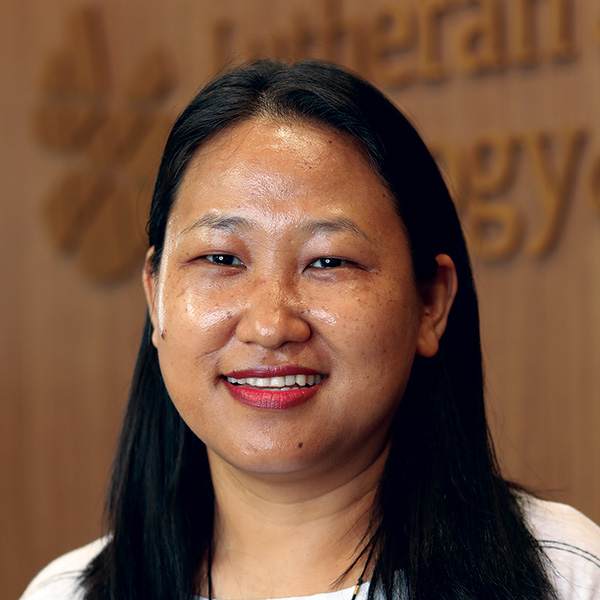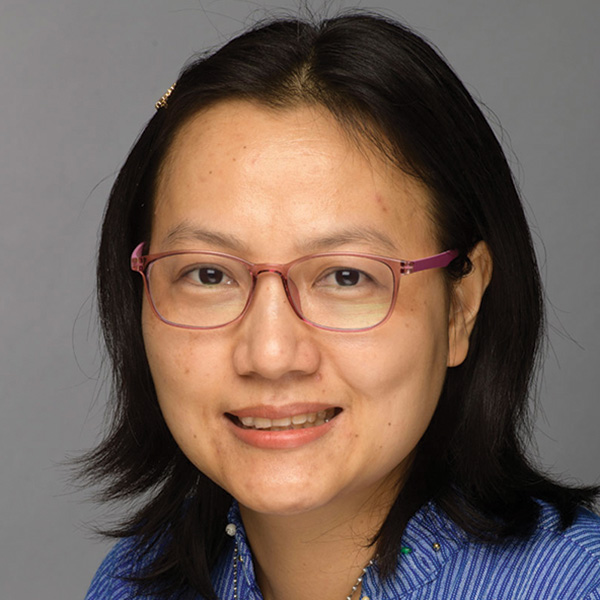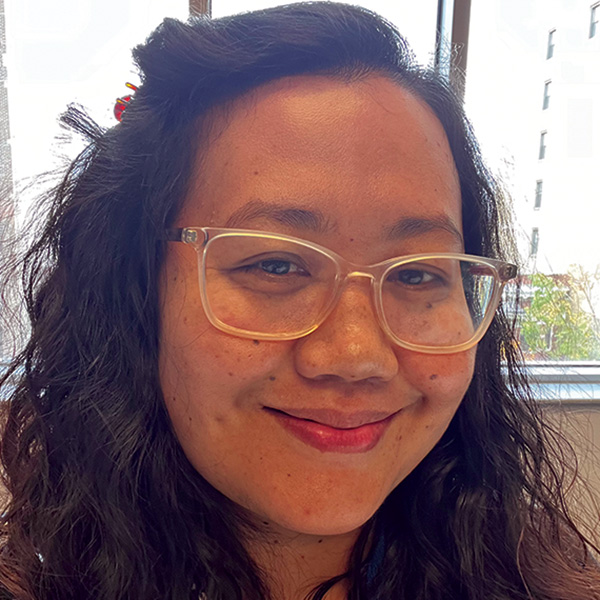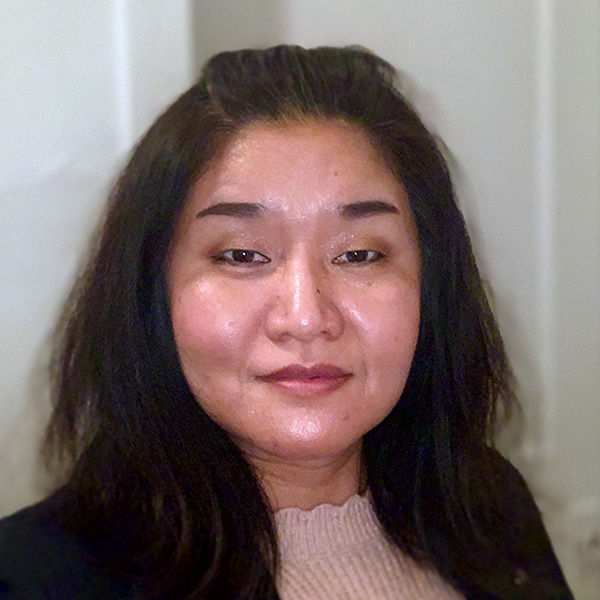Far From Home

As conflict persists in Myanmar, Burmese students at LSTC grapple with distance and despair
The ongoing conflict in Myanmar, which erupted after a military coup in February 2021, continues to have severe consequences for the country’s people. LSTC’s students from Myanmar are no exception. Wu Mee, Char Laywa, Ji Bu, and M. Seng Tsin Nan, who came to the United States to pursue a theological education at LSTC, now find themselves struggling with the emotional and spiritual tolls of being far from home while their country is embroiled in violence and political instability.
Myanmar’s political turmoil, sparked by a military coup, has plunged the country into chaos, leaving thousands of its citizens dead and displacing over a million people. Airstrikes, military crackdowns, and targeted attacks have made it nearly impossible for people in rural areas to communicate with the outside world, creating a chilling sense of isolation.
These challenges are nothing new for Ji Bu. Growing up in Northern Shan State, conflicts between military and ethnic groups were a constant presence for the first-year master of theology student.
“I grew up in a war zone,” she said, describing a community frequently targeted by military raids that led to arbitrary arrests and torture. The airstrikes have continued to intensify, forcing families to flee with just the clothes on their backs.
“People cannot get food or start school,” Ji Bu explained, “My heart aches when I watch news from home, knowing our people are suffering.”
The Emotional Toll of Distance
Being away from their families during such a turbulent time has taken a profound emotional toll on LSTC’s Burmese students. Communication with loved ones has become nearly impossible. The military’s destruction of communication towers cut off internet and phone access in rural areas, leaving first-year master of theology student Char Laywa unable to speak to her family for months at a time.
For Laywa, a student from Kachin State, the silence has been agonizing.
“Before, I could talk to them,” says Laywa, “But now, I don’t know when the phone lines will be open, if at all.”
The isolation has been made worse by a constant worry for her mother, who lives with health issues.
“My mother only has one kidney, and I worry every day whether she’s getting the care she needs,” Laywa said.
Despite her anxiety, she finds solace in her faith. Quoting from 2 Chronicles 20:15, she said, “The battle is not mine, but God’s.”
Wu Mee, a Ph.D. candidate in Theology, shares similar sentiments. Originally from Mogok, Wu Mee feels the weight of being far from her large family. She has seven siblings, and grapples with a nagging guilt as she continues her studies in relative comfort.
“How can I study, eat, and sleep when my family cannot do those things?” she asks, expressing the tension between her personal academic goals and the suffering she knows her family endures.
For M. Seng Tsin Nan, a Ph.D. candidate in Biblical Theology (New Testament), being cut off from home has been equally distressing. Growing up in Myanmar, Seng Tsin was accustomed to the instability of a region long marked by ethnic conflict, but the past few years have been especially brutal.
“It’s not just about the fighting,” Seng Tsin shared. “It’s about the complete lack of security.”
Due to air assaults, her family has relocated for safety reasons. Like her peers, Seng Tsin describes the frustration of not being able to reach them, constantly wondering if they are safe or if they have had to flee. She hopes her academic pursuits at LSTC will help in her future work with communities in Myanmar.
For these students, the conflict in Myanmar is not just a political or humanitarian issue—it is a deeply spiritual struggle. Wu Mee described how she turns to prayer whenever the burden of worry becomes overwhelming.
Inspired by Psalm 46:10, which calls on believers to “be still and know that I am God,” she meditates on this passage for strength.
“It has not been easy to be still during this time,” she admits. “But I ask God for strength every day.”
Similarly, Char has questioned God’s purpose in allowing such suffering but ultimately finds peace in her faith, believing that her country is in God’s hands.
Seng Tsin shares how difficult it is to reconcile the suffering of her people with her studies but believes that faith plays an integral role in enduring these hardships.
“In times like this, I remind myself that suffering has always been part of our story as Christians,” she said. “The witness of those overcoming suffering in the Bible encourages my trust and hope in God.”
Throughout their time at LSTC, these Burmese students have found comfort and assistance from the seminary community. Pastor Erik Christensen, who served the community for the past seven years, has made a concerted effort to ensure the students feel seen and supported.
Christensen has created worship spaces for them to express their grief and share their struggles, offering prayers and letters of comfort. For Ji Bu, these gestures have made all the difference.
“Pastor Erik’s prayers and letters make me feel less alone,” she said. “They lift my burdens.”
Beyond spiritual aid, the practical assistance provided by LSTC has also been crucial. The school’s international student coordinator, Marvis Hardy, has been instrumental in helping the students access resources like campus jobs and scholarships, which are vital to their financial stability during this tumultuous time.
Additionally, the students receive understanding and care from their academic advisors. Dr. Marvin Wickware, one of LSTC’s faculty members, regularly checks in with Burmese students, offering academic and personal guidance as they navigate the dual challenges of their studies and the crisis back home.
“He cares about more than just my coursework,” Ji Bu, an advisee of Wickware, shared. “He’s concerned about my family, my country, and how I’m holding up.
Looking to the Future: Hopes for Myanmar and Beyond
Despite the difficulties they face, the students remain hopeful—not just for their own futures, but for the future of Myanmar. Each of them expressed a deep desire to return home and use their education to rebuild their communities once the conflict ends.
For Char, her hope is that Myanmar will one day find peace so that she can return to her family and contribute to the restoration of her homeland.
“I want to go back and share what I’ve learned here,” she said. “I want to serve.”
Meanwhile, Wu Mee is focused on completing her Ph.D. and using her knowledge to serve her people in whatever way God leads her. She dreams of reuniting with her mother, whom she hasn’t seen in years, and longs for the day when she can hold her in her arms again.
A Call for Support
The students are grateful for the care they’ve received but emphasize the need for continued prayers, international awareness, and financial assistance. They hope their stories will inspire people in the U.S. to pay closer attention to the crisis in Myanmar, which often feels overlooked in global conversations.
“We need your help, not just financially, but emotionally and spiritually,” Ji Bu said. “Please don’t forget us. Our future generation depends on us making our country a better place.”
As Myanmar’s conflict continues, the resilience of LSTC’s Burmese students serves as a powerful reminder of the strength of the human spirit. Through their faith, their community, and their commitment to education, they hold on to hope for a brighter future for their homeland—one that they are determined to help rebuild.

“We need your help, not just financially, but emotionally and spiritually. Please don’t forget us. Our future generation depends on us making our country a better place.”
Ji bu, first-year master of theology student

“Before, I could talk to [my family,] But now, I don’t know when the phone lines will be open, if at all… My mother only has one kidney, and I worry every day whether she’s getting the care she needs.”
Char Laywa, first-year master of theology student

“How can I study, eat, and sleep when my family cannot do those things? … It has not been easy to be still during this time, But I ask God for strength every day.”
Wu Mee, Ph.D. candidate in theology

“In times like this, I remind myself that suffering has always been part of our story as Christians. The witness of those overcoming suffering in the Bible encourages my trust and hope in God.”
M. Seng Tsin Nan, Ph.D. candidate in Biblical Theology (New Testament)